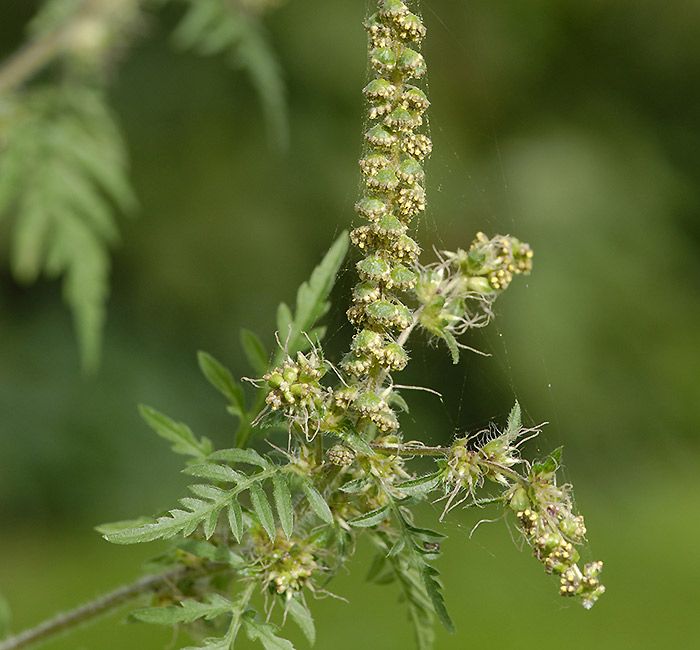Spring is long over and now summer is too. End of stinging eyes, itchy nose and constant sneezing, then? Unfortunately not.
When autumn arrives there are of course many, many things to look forward to: long Sundays spent in the pub by a roaring fire; crisp, golden leaves and roast dinners but sadly, unbeknown to many, this season also comes with its own set of allergies.
Here's what to know so that you can fight them with full force over the coming months…
Common ragweed
Weed Pollen
If you're allergic to weed pollen, unfortunately you'll find that your symptoms don't differ much to when you have hay fever as both allergies are triggered by pollen spores - just of a different variety.
In autumn, weeds such as common dock weed, ragweed, mugwort, nettles, sorrel and plantain all flower. Ragweed produces particularly high pollen levels and its season runs from the end of August up until the first frost which typically arrives in November. Ragweed plant actually produces about a billion pollen grains in one season and these can travel 370 miles out to sea which is not good news for those with sensitivities.
Symptoms are very much like the classic hay fever symptoms - itchy eyes, runny nose, red eyes and wheezing - but there are a number of things you can do to prevent and/or help them. Over-the-counter Antihistamines should reduce discomfort and taking action like showering when you come in from outside and keeping your windows closed will reduce the risk of your symptoms flaring up.
The good news is, Ragweed isn't particularly common in the UK, it's originally a North American plant that has slowly been making it's way over to here and the rest of the UK, but it is something to be aware of.
If you see any in your garden, remove the stalk and whole plant and then mulch with gravel to discourage it from growing back.
READ MORE: Prince William reveals the one thing he's allergic to - and you'll never guess what it is!
Mould spores
Mould is unfortunately something to consider and manage when Autumn arrives.
The spores from mould are found year-round but they peak during this season as the climate becomes wetter and damper.
Symptoms of a mould allergy include sneezing, runny nose, red eyes, and skin rash. For those with a more serious reaction to it though, they will have more severe symptoms like shortness of breath.
Inside your home, the best way to avoid a mould build up is make sure the house is ventilated with the likes of extractor fans, especially in rooms that get very damp and steamy like bathrooms and kitchens.
Avoid drying clothes on radiators in small, confined spaces - instead keep the windows ajar so the steam can escape.
There is also no end of cleaning products, including specifically anti-mould ones, that you can disinfect the house with to prevent mould appearing.
When you're outside, avoid standing near cut grass, leave piles, compost heaps or going on woodland walks.
RELATED: Being allergic to exercise is real - and scientists have proved it
Dust Mites
Another allergy trigger when autumn arrives are dust mites. Again, dust mites are present throughout all seasons however, come the colder months of autumn and winter, they become more prevalent as people spend more time indoors, typically with closed doors and windows and central heating.
Dust mites are common in all households as they are tiny creatures that live off human skin flakes (ew, right?) and it's the protein in their waste product that causes people to react to them. Symptoms are the same as above and antihistamines can help however, it's well worth taking measures to prevent them before having to treat a resulting allergy.
Typically they live in soft furnishing so make sure you wash your bedding every week, clean and hoover your carpets and furniture and wipe down surfaces regularly.
READ NEXT: Are you allergic to alcohol?
Allergies
Most allergies can be helped by over-the-counter medicine (providing you are eligible to take it - check with the pharmacist) however, if symptoms persist, contact your GP.
The Autumn Winter 2018 fashion trends to know about








